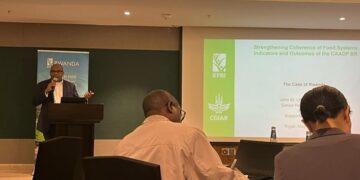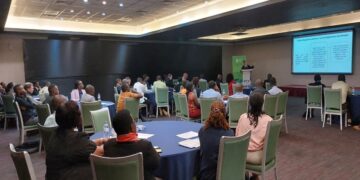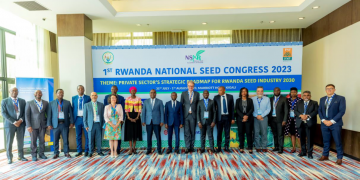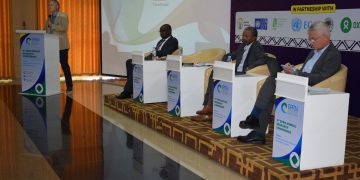In the development of the fifth Strategic Plan for Agriculture Transformation (PSTA-5), the Ministry of Agriculture and Animal Resources has committed to integrating a food systems approach towards achieving sustainable and resilient food systems, thus incorporating indicators that align PSTA-5 to the Comprehensive African Agricultural Development Programme (CAADP) and Post Malabo actions, as well as […]
SEED SECTOR DEVELOPMENT IN RWANDA: A VALIDATION WORKSHOP ON POLICY, REGULATION, AND PRACTICE.
The focus on growth in Rwanda’s seed sector reflects Rwanda’s commitment to transforming agricultural production as outlined in the nation’s fourth Strategic Plan for Agriculture Transformation (PSTA 4). Since 2019, efforts to rapidly privatize seed production and distribution have brought many different perspectives to the table, with a range of views emanating commercial seed companies, […]
Inaugural Rwanda National Seed Congress paves the way for sustainable seed industry growth.
The inaugural Rwanda National Seed Congress, which took place in Kigali from 31 July to 1 August 2023, marked a significant milestone for the country’s seed industry. Themed “Private Sector Strategic Roadmap for the Seed Industry 2030”, the event brought together key stakeholders from the government, public, and private sectors to address challenges and opportunities in the national seed value chain. During the Congress, several key recommendations were proposed to increase the potential of the seed industry. By Marion Aluoch
Boosting Economic Resilience to Economic Shocks: Insights from the 9th Economic Policy Research Network Annual Research Conference
An IFPRI-EPRN event- presentation, facilitation, and panel discussion June 9, 2023 Rwanda’s Vision 2050 articulates the bold development strategy of propelling the country from low to high-income status, by intensifying country’s ambitions towards self-reliance and competitiveness through a private sector led growth and transformation economic model. To achieve the Vision’s targets, there is a need […]
Lessons learned from the Livestock Master Plan and future investment priorities for animal resources development
Under PSTA4, the Rwandan government has set several growth targets for the sector, including increasing milk production from 785 million liters in 2018 to 1.5 billion liters by 2024, and increasing the national herd size from 1.5 million to 2.5 million by 2024. To achieve these targets, the government developed the 15-year livestock sector strategy that identified promising interventions and policies, and a five-year Livestock Master Plan (LMP, FY 2017/2018 to 2021/2022) that set out an investment roadmap to modernize the sector in line with the National Transformation Strategy and PSTA4




